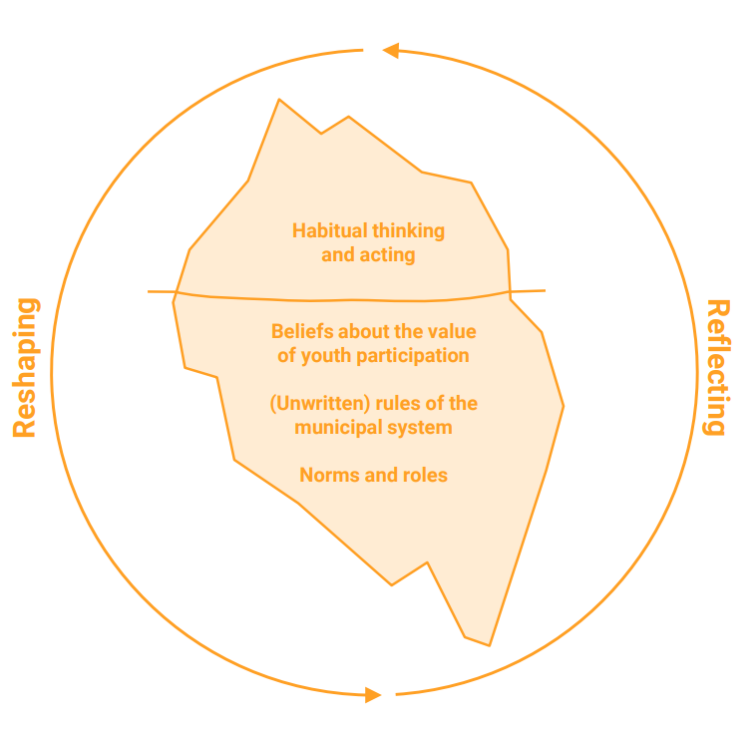Towards responsive policy making
Dec 2023 - ongoing
Towards responsive policy making: Enabling policy advisors to experience thinking and acting in response to the needs of youth
Dutch municipalities are striving for a better connection with their residents and increased mutual trust. Nevertheless, the voice of youth is often overlooked in this process, despite their right to be heard in policies and decisions that affect their lives. This is reinforced by bureaucratic institutions primarily focusing on executing tasks, processes, and protocols, sidelining youth and their needs and causing them to disengage from governments and other institutions. Therefore, a growing need for municipalities to involve youth in their policy making emerges. However, in practice, many policy advisors struggle to do so, despite the availability of various tools and strategies. This project aims to understand barriers to youth participation and develop an approach to enable policy advisors from the municipality of Rotterdam to meaningfully involve youth in policies that affect them.
Through design research, a deep understanding is developed of the challenges and needs of policy advisors regarding youth participation. This included observation and participation within the municipal context, in-depth interviews, guerrilla interviews, iterative testing, and Service Ecosystem Design theory.
The research revealed that various social structures underlie the normalized thinking and behavior of policy advisors:
- Ambiguous beliefs about the value of youth participation
- Constraints imposed by the (partly unwritten) rules of the municipal system
- Entrenched norms and roles.
These structures lead to assumptions about the needs of youth and barriers to their involvement in policy.
A learning approach is iteratively designed and tested. With this approach, policy advisors can experience the value of thinking and acting in response to the needs of youth, in an accessible way. These experiences contribute to increasing their motivation and knowledge about involving youth in policy. The approach includes multiple conversations and conducting small experiments that reflect on the current way of working. For example, by shadowing a youth worker for a day or engaging in a conversation with a young person from their own network about a policy question.
Challenging assumptions about youth and their needs through active and attentive experiences proves to be essential to enable policy advisors to reconsider and possibly reshape municipal structures and processes. A personally guided learning process can create space for this, allowing current attitudes and practices to change. These can promote the structural and meaningful use of participatory approaches and result in policies that meet the needs of youth. The project thus offers a new perspective and a small yet fundamental step by the municipality towards a better and mutual relationship with its (younger) residents.
Check out more here!
